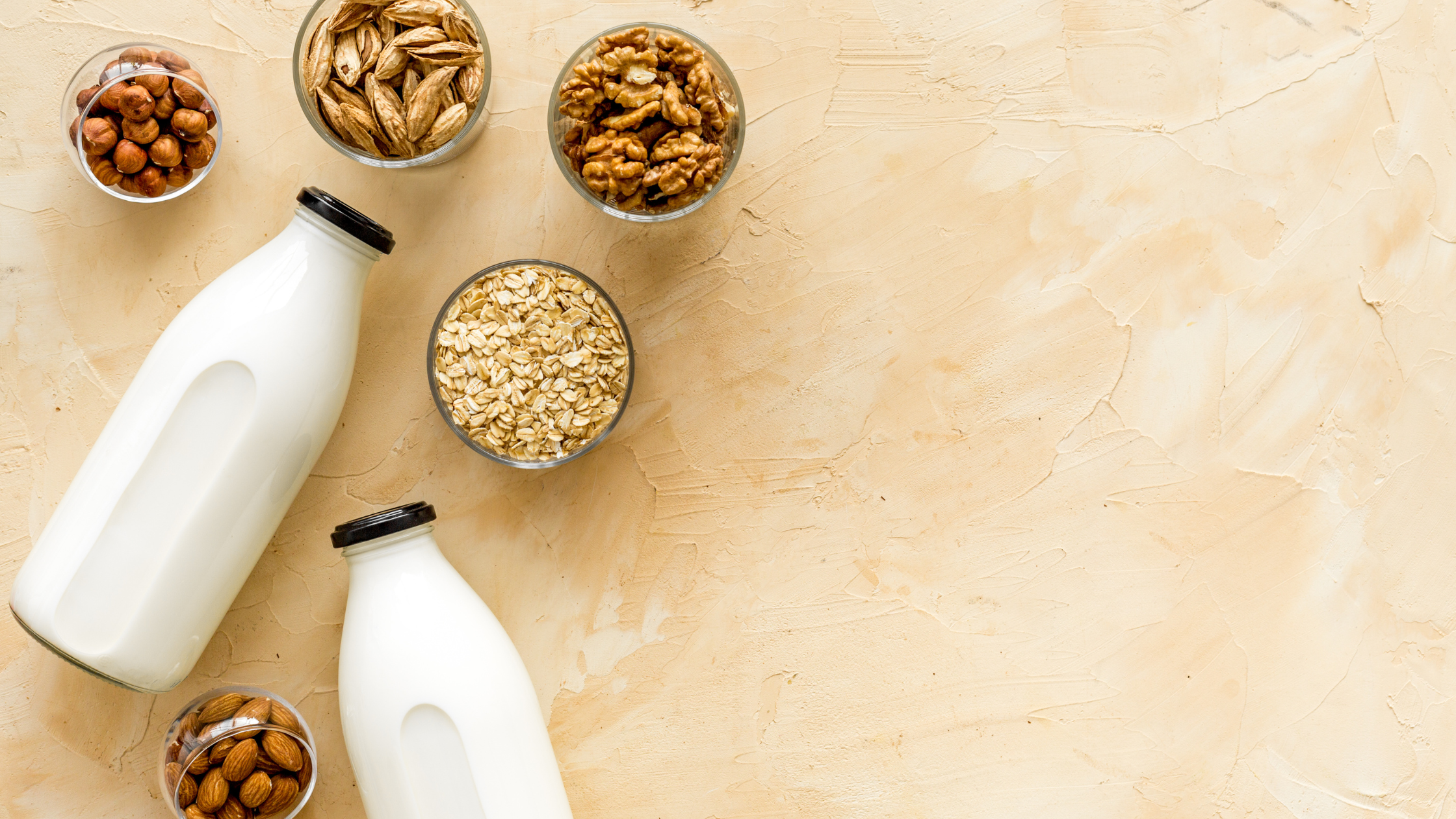 Julia Fountain ND NCMP
Julia Fountain ND NCMP
There’s considerable variation in the nutrition composition of milk alternatives. It’s udder-ly confusing. What are you wanting from your milk? Are you relying on milk as a calcium source? To boost protein in your diet? Or just purely as a way to add flavour to your smoothie, texture to your coffee or as a carrier for your cereal? All milk alternatives are not created equal.
Here’s a quick lowdown on how to choose your milk based on nutritional needs:
Protein: Cow’s milk provides the highest protein content of all milks at 9 gm/cup. Plant-based milks are generally low in protein, the exceptions being pea milk (Ripple) at 8 gm/cup and soy milk at 7 gm/cup. Oat milk can hit 4-5 gm/cup. Almond, cashew, coconut have little to no protein at 0-1 gm/cup
Calcium:
Cow’s milk contains 300 mg/cup. Plant-based milks are variable. If they have calcium it’s because they’ve been enriched with calcium. Most fortified plant-based milks will be enriched to the standard of cow’s milk at 300 mg/cup. However some are enriched with less than 100 mg calcium/cup. Many milk alternatives do not contain calcium.
Sugar:
Cow’s milk has 13 grams of sugar from naturally occurring lactose. Plant-based milks can vary from 0 in unsweetened versions to 20 grams added sugar in sweetened versions. That’s equivalent to 5 tsp of added sugar per cup! Look beyond the front of package and check the Nutrition Facts label. “Plain”, “natural”, “unsweetened” or “no sugar added” isn’t always synonymous with zero grams of sugar on the Nutrition Facts label.
Most oat milk will appear to have a relatively high sugar content – not necessarily due to added sugars but to the processing which reduces oat starch into simple sugars. If you’re looking to decrease sugar, lower sugar oat milk brands such as Oat Canada are available.
Calories:
2% cow’s milk supplies 130 calories. Plant-based milks are variable from 25 calories/serving to 130 calories/serving. Soy milk has a similar calorie profile to 2% cow’s milk.
Additives and preservatives:
Plant-based milks are a manufactured food. Many brands use emulsifiers (soy lecithin) and/or gums (guar gum, xanthan gum) to maintain texture and prevent the milk components from separating. Enriching with vitamins and minerals will add to the ingredient stack. Homemade nut milks and brands such as Elmhurst offer additive-free options, which also means they won’t have calcium added.
The bottom line is to read both the Nutrition Facts label and the ingredient list to know what you’re getting and if it’s providing the nutrition you expect. All milks are not created equal.